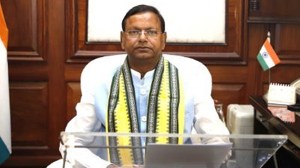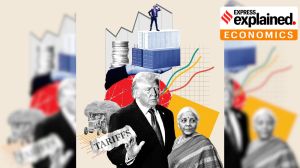Not so exotic
Black money isnt just funds secreted abroad. Finance ministry is right to focus closer home
Black money isnt just funds secreted abroad. Finance ministry is right to focus closer home
On Monday,Finance Minister Pranab Mukherjee tabled a white paper on black money in Parliament to dispel the perception that the government is sleeping on the job. Almost 100 pages long,it is a synopsis of the history of tax evasion in India going back to the 1930s. It states the problem,falls short of a solution,but lays down the rubric within which it must be sought. Most significantly,it establishes that the problem is complex. The present discussion on black money began with the BJPs campaign to recover Indian money stashed overseas. It was a stirring nationalist project promoted by a party desperately in need of an emotive issue.
The BJP highlighted the problem but distracted attention from the likelihood that Indians stash most of their black money right here at home. Indias fast-growing economy is a more attractive destination than the moribund and volatile western markets. Tax havens have been less attractive since 2009,when the G-20 ganged up on them. The big powers agreed that havens compromise tax collections of all nations and Switzerland,Liechtenstein,Luxembourg and Monaco agreed to dilute the anonymity of bank depositors in the interest of transparency. While estimates of Indian black money vary so drastically as to be unreliable,it is certain that more than ever before,unaccounted funds are likely to be parked at home. Mukherjee has shifted the focus of the future enforcement regime away from funds secreted overseas to real estate and gold.
But a change of policy attitude must accompany the change of focus. Taxation has become a game of cat and mouse between taxpayer and government. Tax is seen as extortion,not a legitimate price to be paid for public services and nation-building. Perhaps its because services short-change users and taxpayers feel alienated from the blueprint for national development. The finance ministry has now identified real estate and gold as the biggest sink-holes for black money. It has also cast the evasion net wider by mentioning market manipulation,corruption and organised crime in the white paper. But it is still to shift the emphasis from enforcement to compliance by developing a tax regime that is not seen to be extortionate. A lot of black money is generated by law-abiding citizens engaged in legitimate activities who do not reveal their income. They must be encouraged rather than forced to do so.
- 01
- 02
- 03
- 04
- 05































